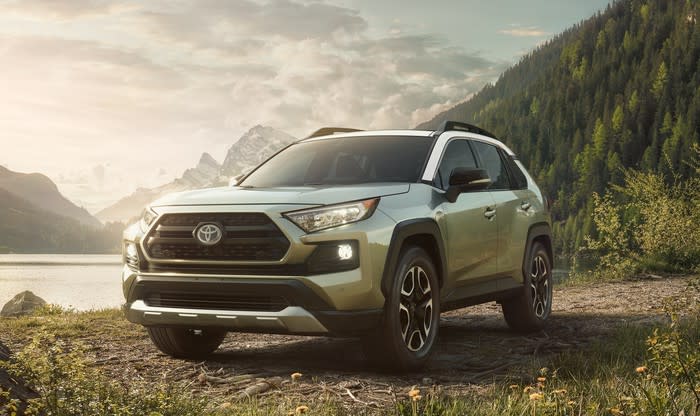Better Buy: Toyota Motor Corporation vs. Fiat Chrysler Automobiles
Auto stocks have had an up-and-down 2019. While some have recovered from a sectorwide slump late last year, others have had a bumpier ride.
Experienced auto investors know that sometimes, the companies having bumpy rides can be good investments if their management teams are getting them back on track. Fiat Chrysler Automobiles (NYSE: FCAU) has had a harder time than most over the last several years, but things have been looking up lately. Toyota (NYSE: TM), on the other hand, is the closest thing to a blue-chip stock in the automotive sector, and it has had a nice year so far.
Which is the better buy right now? Let's dive in.
Valuation and stock performance
Most auto stocks, Toyota and FCA included, fell sharply in the fourth quarter of 2018. But Toyota and FCA have followed different paths since the beginning of this year: Toyota has recovered nicely, while FCA has given its investors a less comfortable ride.
Turning to valuation measures based on earnings, we see that Toyota is currently trading at about 8 times its trailing-12-month earnings, while FCA is trading at 5.6 times its earnings over the same period. Given that the historical norm for auto stocks in good economic times is around 10 times earnings, both look a bit cheap -- but FCA looks a little cheaper at the moment.
Dividends: How Toyota and FCA compare
Toyota pays dividends twice a year. In the fiscal year that ended on March 31, 2019, it paid total dividends of 220 yen, unchanged from the previous year. That translates to a dividend yield of about 3.2% at current prices.
Fiat Chrysler just reinstated its dividend. In May, it paid an annual "ordinary' dividend of 0.65 euro (about $0.73 at the time) as well as an "extraordinary" dividend (a one-time payment related to the sale of its Magneti Marelli subsidiary) of 1.30 euros (then about $1.46). That ordinary dividend translates to a yield of about 5.6% at current prices.
Advantage: Fiat Chrysler, if it can sustain that level of dividend payment over time.

Jeeps and pickups -- and a new Jeep pickup -- have helped boost FCA's margins, especially in North America. Image source: Fiat Chrysler Automobiles.
Growth and potential risk
Toyota is a blue chip, while FCA is to some extent an ongoing restructuring story. That might seem to favor Toyota, but consider: Both of these companies, like most big automakers, are mature industrial giants that aren't likely to see significant bottom-line growth -- unless something happens to improve their profitability.
That "something" could be a restructuring effort. Automakers restructuring in a bid to improve profitability are often -- not always, but often -- investments with market-beating potential.
FCA could have that potential. It was ahead of the industry in reducing investments in sedan models to boost its higher-profit truck and SUV portfolios, and it has recently begun to reap the benefits. In the second quarter, its operating margin (excluding one-time charges) in the key North American market rose almost a full percentage point to 8.9%, ahead of old rival Ford Motor Company, and it reiterated its upbeat guidance for the remainder of 2019.
While Toyota CEO Akio Toyoda is pushing to cut costs, Toyota isn't doing anything like a restructuring; it doesn't need one. But that means its near-term growth prospects are less attractive. In fact, Toyota now expects its full-year operating income and revenue to fall versus the year before, on sluggish sales and concerns about exchange rates.

Toyota's sedans carried the company for many years, but it's no slouch on the SUV front: Its compact RAV4 is a huge seller. Image source: Toyota.
Which is the better buy now?
It's probably Fiat Chrysler. While FCA may be more vulnerable than Toyota to a recession, and thus higher-risk, it probably has more potential upside. It doesn't have much of a dividend track record yet, but its most recent payout was a good one. And its ongoing restructuring means that it might have more potential for profit growth over the next several years.
That said, Toyota is about as rock-solid as an automaker gets, with a strong balance sheet, deep pockets, and a veteran management team that has it on a good course. Of the two, I'd take FCA for growth -- but I wouldn't argue with a conservative dividend-minded investor who chose Toyota instead.
More From The Motley Fool
John Rosevear owns shares of Ford. The Motley Fool has no position in any of the stocks mentioned. The Motley Fool has a disclosure policy.
This article was originally published on Fool.com

 Yahoo Finance
Yahoo Finance 